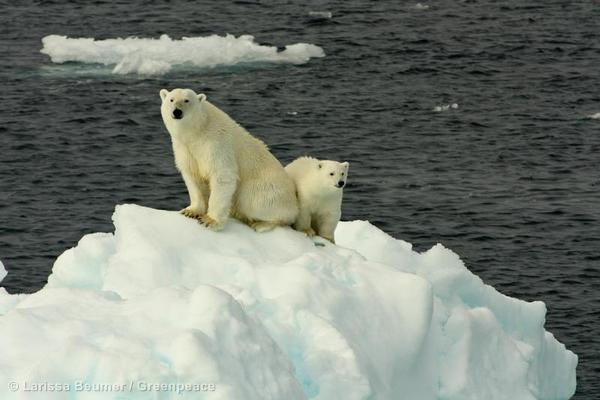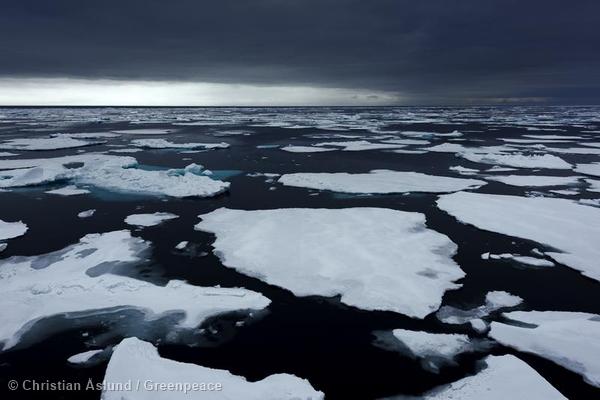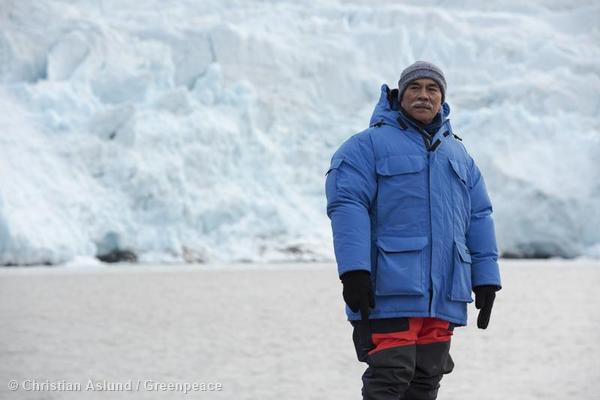Look, a polar bear!’
He might be a Head of State, but even the President of Kiribati, His Excellency Anote Tong, could not hide his excitement at seeing one of these magnificent animals in the wild.’

The young male polar bear was sitting on an elevated rocky ledge looking down at us with curiosity – perhaps to see whether we might make a tasty lunch!
I was in the Arctic with President Tong of Kiribati on a Greenpeace ship because –just like the Arctic– his country is at grave risk from global warming. We had made landfall, so that President Tong could see at first hand, the retreat of a glacier.
It was the first trip to the Arctic for us both. What I saw was mind blowing; dramatic, crystal white and blue glaciers towering over the ocean – sights of unbelievable beauty. And then there was our friend the polar bear, as well as a pod of whales.
Beside me, President Tong looked out at the frozen northern horizon with deep respect and grave concern. For years, Anote Tong has been pressuring the international community to act on climate change, but this is the first time he’s come face to face with the melting region that’s drowning his country.
Sea levels are rising faster in Tong’s backyard than almost anywhere else in the world. With its scant soils already affected by the rising seas, Kiribati could become completely inundated. The President told me, “If nothing is done, Kiribati will be the first country to go underwater. By about 2030 we start disappearing. It’s really a matter of survival. You know, the projection of sea level rise is between half a metre to one metre. That’s serious for us… If we don’t do anything, we will not survive.”
For Anote Tong, the fate of the warming Arctic is not a matter of intellectual concern, but national survival.
And it’s not just the tiny island of Kiribati that should be worried. Coming back to Australia I was greeted with the news that scientists say it is 98% likely that last year’s heat wave was a product of global warming. This is our country, baking under unnatural heat driven by climate change.
What happens in the Arctic doesn’t stay in the Arctic. From the ice of the north, to the coral of the south, the fate of the Arctic is bound up with the fate of us all on our beautiful, irreplaceable planet.




